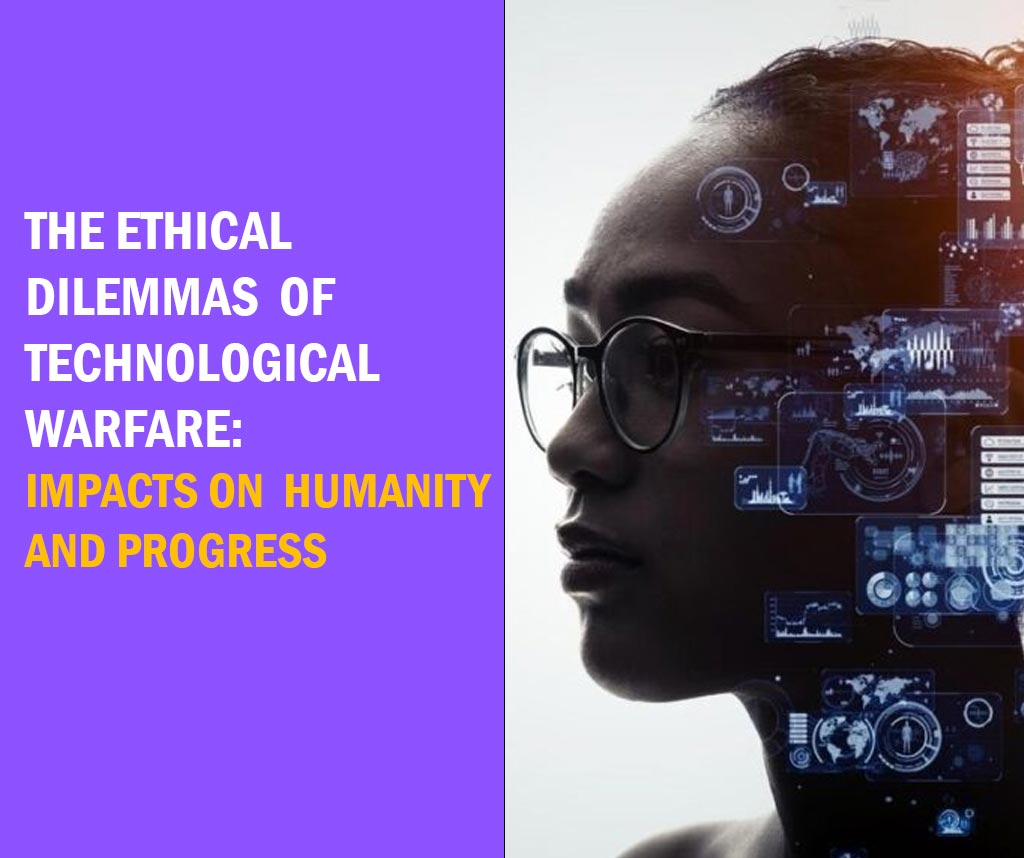According to Wisevoter.com, there are 37 active wars on the planet Earth. The mass majority, or 49%, stem from terrorist insurgencies, and 25% are civil wars, with a few drug wars and ethnic violence. What happens when war becomes strategic with the interchanging of guns, missiles, cybersecurity, and artificial intelligence (AI)? There are several technological ethical concerns that all countries’ leaders need to consider. Some of these concerns include:
The creation and use of autonomous weapons systems present ethical dilemmas. Leaders need to examine the consequences of allowing machines to make decisions that could result in loss of life without human oversight. Using cluster bombs, for instance, can lead to indiscriminate destruction and harm to civilians. There are also concerns about these systems escalating conflicts beyond human control. Therefore, it is essential to consider the ethical implications of autonomous weapons.
The use of advanced technologies in warfare can violate human rights and privacy. Governments may use technologies like surveillance, AI-powered facial recognition, and data collection, which can compromise people’s privacy and freedom of expression. Leaders must balance national security with individual rights and ensure these technologies are used responsibly and within legal boundaries. Ethical considerations must be taken into account to avoid any harm to individuals.
In the current era of global interconnectedness, the issue of cyberwarfare has become a significant ethical concern. Leaders must address the numerous challenges associated with this phenomenon, including the threat of hacking, cyber-attacks, and data breaches. These threats can disrupt vital infrastructure, compromise sensitive information, and erode public trust. It is essential to consider the consequences of offensive cyber capabilities, which could result in unintended collateral damage and the risk of escalating conflicts.
The potential misuse of AI in warfare is a cause for concern. Therefore, leaders must carefully weigh the ethical implications of developing and deploying AI systems that can deceive, manipulate, or unfairly target individuals or populations based on biased algorithms. If AI is used for propaganda, misinformation, or psychological manipulation, it can severely affect society, politics, and humanitarian efforts.
Leaders must prioritize accountability and transparency to ensure the ethical use of technology during the war. This can be achieved by establishing clear rules, guidelines, and international norms for developing and using advanced military technologies. It is concerning when countries engage in covert operations, withhold information, or evade responsibility for the consequences of their technological actions.
Satellites play a crucial role in modern warfare, serving as a means of communication, reconnaissance, navigation, and intelligence gathering. However, they are susceptible to cyber-attacks that can disrupt or turn off their systems, causing communication breakdowns, compromised surveillance capabilities, and disrupted global positioning systems (GPS). These attacks can severely affect military operations, civilian infrastructure, and international communication.
Telecommunications infrastructure is a crucial target for cyber-attacks during warfare. This includes networks, fiber-optic cables, and communication nodes. Attacking these systems can disrupt or compromise communication networks, which can have serious consequences. It can hinder military operations, emergency response systems, and economic activities. This can also affect civilians by impeding access to vital services, hindering disaster response, and causing social and economic disruptions.
During warfare, cyber-attacks can target critical infrastructure systems such as power grids, transportation networks, water supply systems, and healthcare facilities. These systems depend highly on technology and interconnectivity, making them vulnerable to disruption and sabotage. Such attacks can have dire consequences on civilians, resulting in power outages, transportation disruptions, and compromised essential services.
Industrial Control Systems (ICS) are used in vital energy, manufacturing, and transportation sectors. Unfortunately, they can be targeted in cyber warfare. These systems are responsible for managing and controlling critical processes. A successful cyber-attack could lead to physical damage, production interruptions, environmental hazards, and even human fatalities. Taking ICS breaches seriously is important because millions of people can be affected immediately.
The widespread use of IoT devices, such as smart home devices, wearables, and industrial sensors, has opened up new cyber-attack opportunities. These devices often lack sufficient security measures, making them vulnerable to large-scale botnet attacks, data theft, and network disruption. In military contexts, IoT devices can be targeted or used as vectors for cyber-attacks to sabotage infrastructure or gain access to military systems.
We need strong cybersecurity measures, cooperation between nations, and public-private partnerships to safeguard our technological infrastructure from cyber-attacks. Governments, organizations, and individuals must invest in cybersecurity practices, conduct risk assessments, and work together to enhance our resilience against cyber threats. This will prevent potential harm and ensure continued progress for humanity.
This article was intended not to take political sides or create a spectacle. It plans to fully acknowledge the consequences that impact humanity in this interconnected society that will affect all civilizations. Addressing these ethical concerns requires international cooperation, honest dialogue, and the development of ethical frameworks and regulations. Leaders must prioritize the humanitarian impact of technology in warfare and consider the long-term consequences of their actions to prevent unnecessary harm and ensure the protection of human rights.

